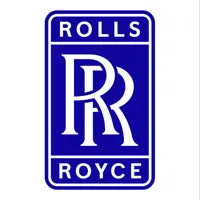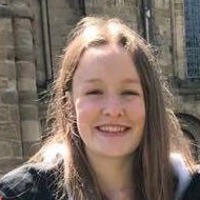

Breanna Lynch
Nuclear Graduate at Rolls Royce
Work hard and believe in yourself, don't let other people set your expectations.
About Breanna...
Who am I?
"I generally agree with my personality profile, I got coach, quality controller and trainer. I think they don’t scream scientist to others immediately but that if you look at them in more detail you will discover that it makes sense. Quality controller: Picking out one quality of challenging the way things have always been done, that is by definition what scientists are doing. At school it may seem like science is all hard facts and that we know everything but in this career you soon discover how much is not known. Scientists all have a burning curiosity to determine how the world works and are challenging this everyday.Coach: Creative and problem solver. Science is about solving problems. If you look at the results and they are not showing you what you would expect you have to discover the reason why. Put another way you can identify issues in the world and look for solutions to solve them. This does involve quite a lot of creative thinking.Coach and quality controller: Both are trustworthy and honest. This is important for any career but more so in science. If you pay attention to detail and are always honest in your results your conclusions can be trusted.Trainer: Good at simplifying complex information, passionate about sharing knowledge and thinking of creative ways to get information to other people. This is something I think I am not always as good at but something that I am passionate about improving because of its importance. Science is fascinating but to really make a change scientists have to be able to communicate their findings to the wider population. Take climate change for an example, it took years and many different ways of explaining scientist findings before they were believed."
What do I do?
"I am a graduate so I rotate roles, that I get to choose, every 4-8 months. I have been a chemistry technologist, which means that I modelled, using computer programming, the chemistry of a nuclear power plant to be able to predict the breakdown materials in the plant in different conditions over time. This helps us to keep the plant safe.I am presently a thermal hydraulics analyst, which means that I work with software and experiments to ensure that the nuclear reactor remains cool. A very important event as overheating is a potential cause of nuclear accidents. Next I will be working as a technical policy advisor, offering advice to ministers in government on nuclear innovation and how they can help with its development. They are looking into whether nuclear can fulfil the clean energy gap via innovation giving time for renewable to be developed further.I most enjoy problem solving. In science no one knows the answer and everyone is working it out together. I also enjoy the variety I get by rotating roles, it allows me to explore what I am interested in and learn a lot in a short amount of time.My starting salary is £27,000. "
How did I get here?
"I completed two summer internships at P2i, a company that uses plasma (the fourth state of matter found in the sun and lightning) to waterproof phones. They are actually going to waterproof Samsung’s next Galaxy phone I believe. This work was largely experimental, running the plasma process to coat the phones and testing to see whether they survived handling and dunking in water. I did my master’s in modelling different ways to create ultracold atoms, those close to absolute zero, the coldest temperature that can be reached in the universe. I realised from this that whilst I enjoyed experimental work, I love coding, even though I am largely self-taught. I applied to a mixture of jobs in different scientific areas and picked to work for nucleargraduates as I think that nuclear energy has a key role to play in the fight against climate change. Slightly typical but honestly my Mum inspired me the most. I was told growing up that STEM was a strange subject for a girl to like but my Mum always pushed me to ignore their, incorrect, assumptions and do what I enjoyed. "
The life I live
"I jog, do Pilates, play badminton, and most recently I have taken up bouldering. Bouldering is essentially rock climbing without the rope and harness. My friends and family have found this a strange hobby for someone with little upper body strength and a large fear of heights but I have surprisingly really enjoyed it. "
My typical day
"I normally start the morning answering emails. I spend the bulk of my day working through a main project with some time taken up with more urgent work. My last project was modelling the chemistry in the nuclear reactor to test against experimental results. We were hoping to show that the modelling technique was correct. I attend meetings discussing other peoples work so we are all kept up to date on work in the department. I also spend quite a lot of time researching roles to rotate to and discussing them with others. Having the ability to choose our next role is excellent but making the choice and arranging the role takes time. I can similarly choose to attend conferences or training courses I find interesting. "
My qualifications
"A level: A* Physics and biology\t A Chemistry and mathsMSci Chemistry and physics within the natural sciences programme at Durham UniversityPGCert Nuclear TechnologyI picked all sciences and maths for A level as I found them the most interesting at GCSE. I studied 4 because I was told I was going to do poorly in chemistry but I loved it so I decided to hide my grade behind my biology grade if necessary (it wasn’t, and this was not the brightest idea I ever had – because very few Universities counted the 4th grade and it meant a lot of hard work for me over the 2 year A’level period for minimal gain).I picked natural sciences to study at university as I love all science and so had no idea which to pick for further study. I choose to carry on with both chemistry and physics, my two favourites, under this. I completed an integrated masters as masters are usually required to work in the scientific industry.I am presently completing a postgraduate qualification in nuclear technology whilst working as I genuinely love learning, and very little nuclear science was covered in my degree."



